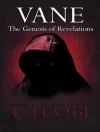In ‚The Dawn of All, ‚ Robert Hugh Benson crafts a profound narrative that intertwines elements of science fiction and theological speculation. Set in a dystopian future where humanity is facing the repercussions of a world devoid of faith, Benson explores the moral and spiritual dilemmas that arise from a society guided only by materialism. His literary style combines vivid imagery with introspective dialogue, invoking the traditions of both speculative fiction and moral philosophy. The novel is steeped in the context of early 20th-century anxieties regarding secularism and a loss of spiritual direction, reflecting the author’s concerns about the world in which he lived. Robert Hugh Benson was a former Anglican priest who converted to Catholicism, a shift that profoundly informed his writing and worldview. His experiences in the clergy, alongside his familiarity with religious themes, emboldened him to critique contemporary society’s drift from spiritual values. Writing in the wake of the First World War, Benson sought to engage readers in a conversation about faith, redemption, and humanity’s ultimate purpose within a challenging modern landscape. Readers seeking a thought-provoking exploration of faith’s role in a secularized world will find ‚The Dawn of All‘ to be an enriching and enlightening read. Benson’s unique blend of narrative depth and ethical inquiry invites reflection on the moral choices that define humanity’s future, making it a timeless work that resonates with both spiritual seekers and literary enthusiasts alike.
Über den Autor
Robert Hugh Benson (1871–1914) was an English priest and prolific author, who garnered posthumous acclaim for his literary contributions to the Christian fiction genre. The son of the Archbishop of Canterbury, Benson was initially an Anglican priest but later converted to Roman Catholicism and was ordained as a Catholic priest in 1904. This conversion significantly influenced his writing, and he often explored the conflicting tensions between the Anglican and Catholic faiths within his works. Benson was distinguished for his skillful storytelling and his ability to intertwine religious themes with the popular fiction of his time. Perhaps his most notable dystopian work, ‚The Dawn of All‘ – a lesser-known sequel to his acclaimed novel ‚Lord of the World‘ – envisions a future where Roman Catholicism has shaped world society. Benson’s literary style is characterized by rich description, deep religious and philosophical underpinnings, and a nuanced understanding of human nature and theology. Although his works primarily attracted Catholic readers, the universal appeal of his themes has continued to resonate with a broader audience. Benson’s contributions to Christian literature and his exploration of prophetic and speculative fiction remain influential, underlining the enduring significance of his canon far beyond his lifetime.












